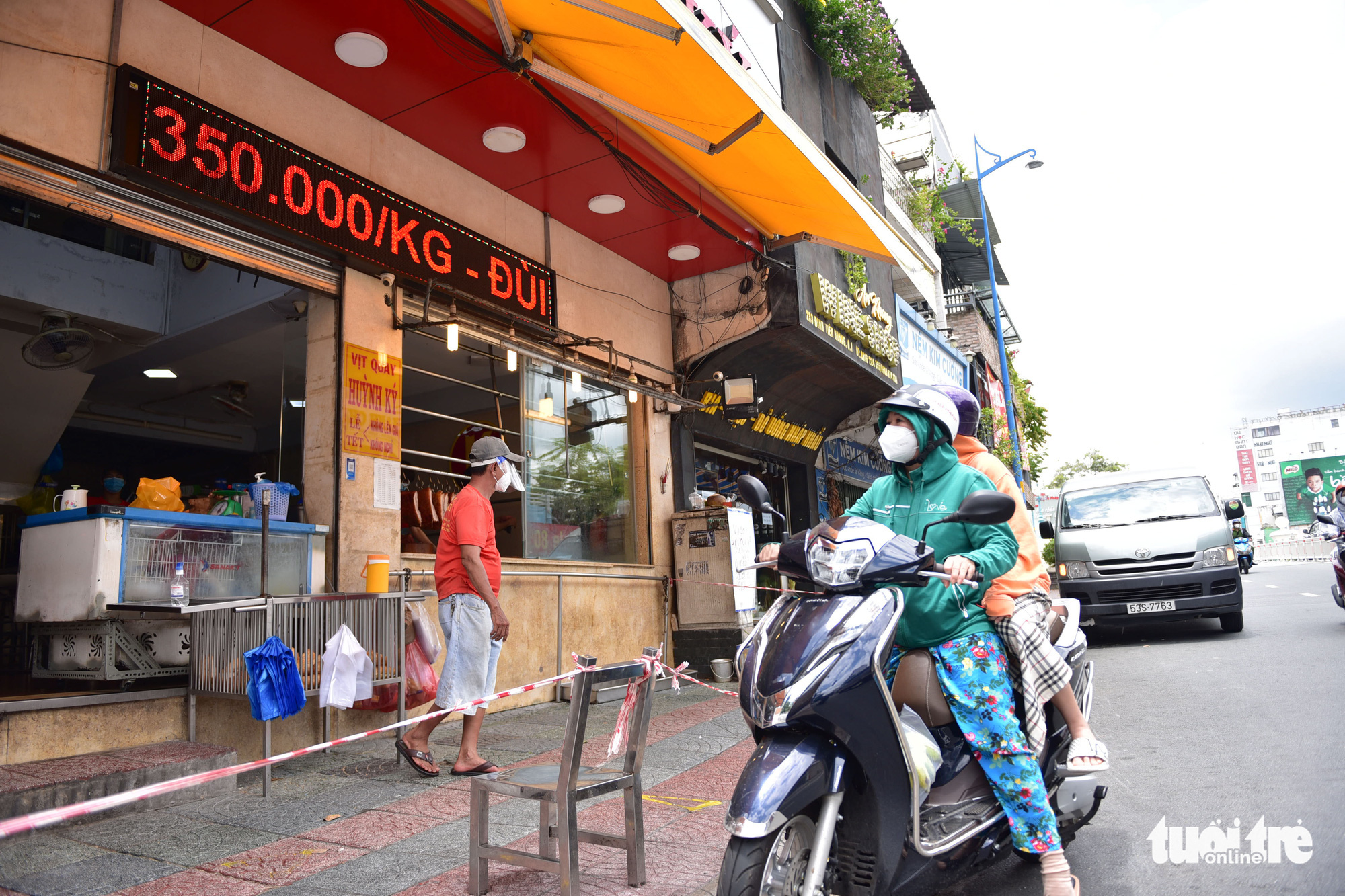The Ho Chi Minh City Steering Committee for COVID-19 Prevention and Control has issued a set of safety assessment criteria for eateries, food businesses, supermarkets, and shopping malls to reopen.
There are six criteria for catering service providers and seven for supermarkets, shopping malls, and food retailers.
Catering service
- The establishment must have a certificate of food safety.
- The establishment must ensure food safety conditions in accordance with regulations.
- Employees, customers, and delivery workers must strictly follow health authorities’ pandemic prevention and control instructions. All staff members have to be vaccinated against COVID-19 and test negative for the novel coronavirus.
- All people have to follow basic pandemic prevention measures, namely wearing face masks, sanitizing hands, and keeping a minimum distance of two meters.
- The delivery area must be separated from the remaining sections, while hand sanitizer, antiseptic, and hand dryers or disposable hand towels must be prepared.
- The establishment has to prepare plans for COVID-19 prevention and control, and ensure the minimum density of four square meters per person. It must also ensure the minimum distance of two meters between each person or install partitions.
All careering businesses in the city must meet the first five criteria, while the sixth requirement applies to dining establishments reserved for employees of local companies.
Supermarkets, shopping malls, and food retailers
- Customers and employees in direct contact with customers must have a COVID-19 'green pass,' while the activities of other departments must be limited.
Staff members must test negative for COVID-19. Drivers and delivery staff must have a green pass and negative test result.
- The minimum density must be four square meters per person, while all people must be at least two meters apart.
The establishment must have plans to arrange customers in queues and regulate the number of shoppers.
Measures must be taken to ensure safe distance at parking lots, storage, and restrooms.
The entrance and exit must be separated.
There must be partitions at cashier counters, and customers have to stand at least two meters from one another in waiting lines.
Separate trays must be prepared to give and receive products and cash between cashiers and customers to avoid direct contact.
- The establishment must require staff and customers to file health declarations, wear face masks, and have their body temperature measured.
Specialized units need to be put in charge of reminding people to follow pandemic response measures.
Employees must not be allowed to work if they have such symptoms as fatigue, fever, coughing, sore throat, or difficulty breathing. If employees and customers have such signs, they must undergo health examinations in accordance with regulations.
- The establishment must prepare medical equipment and supplies for pandemic prevention and control at parking lots, entrances, cashier counters, restrooms, and warehouses.
The equipment includes thermometers, disinfectants, QR code scanners, COVID-19 green pass identification devices, face masks, face shields, medical gloves, and medical supplies for handling suspected cases.
- The delivery area must be separate from the shopping area.
In the shopping area, surfaces and objects that often come into direct contact with customers must be disinfected at least four times a day.
The floor, tables and chairs, shelves, stalls, and other objects must be fumigated at least once a day.
There must be recycle bins with proper covers. Waste collectors have to wear face masks, face shields, and medical gloves.
Ventilation must be enhanced, while the use of air conditioners must be reduced. The room temperature must not be lower than 25 degrees Celsius.
- The establishment must play messages via loudspeakers at least once every two hours to remind customers to comply with pandemic response measures. This can be replaced by signs and information boards.
The contact information of officials in charge of COVID-19 prevention and control as well as of local health authorities must be provided to all customers.
- The establishment must prepare for scenarios where COVID-19 patients are detected, closing and reopening plans, and testing plans for all employees.
Like us on Facebook or follow us on Twitter to get the latest news about Vietnam!



























